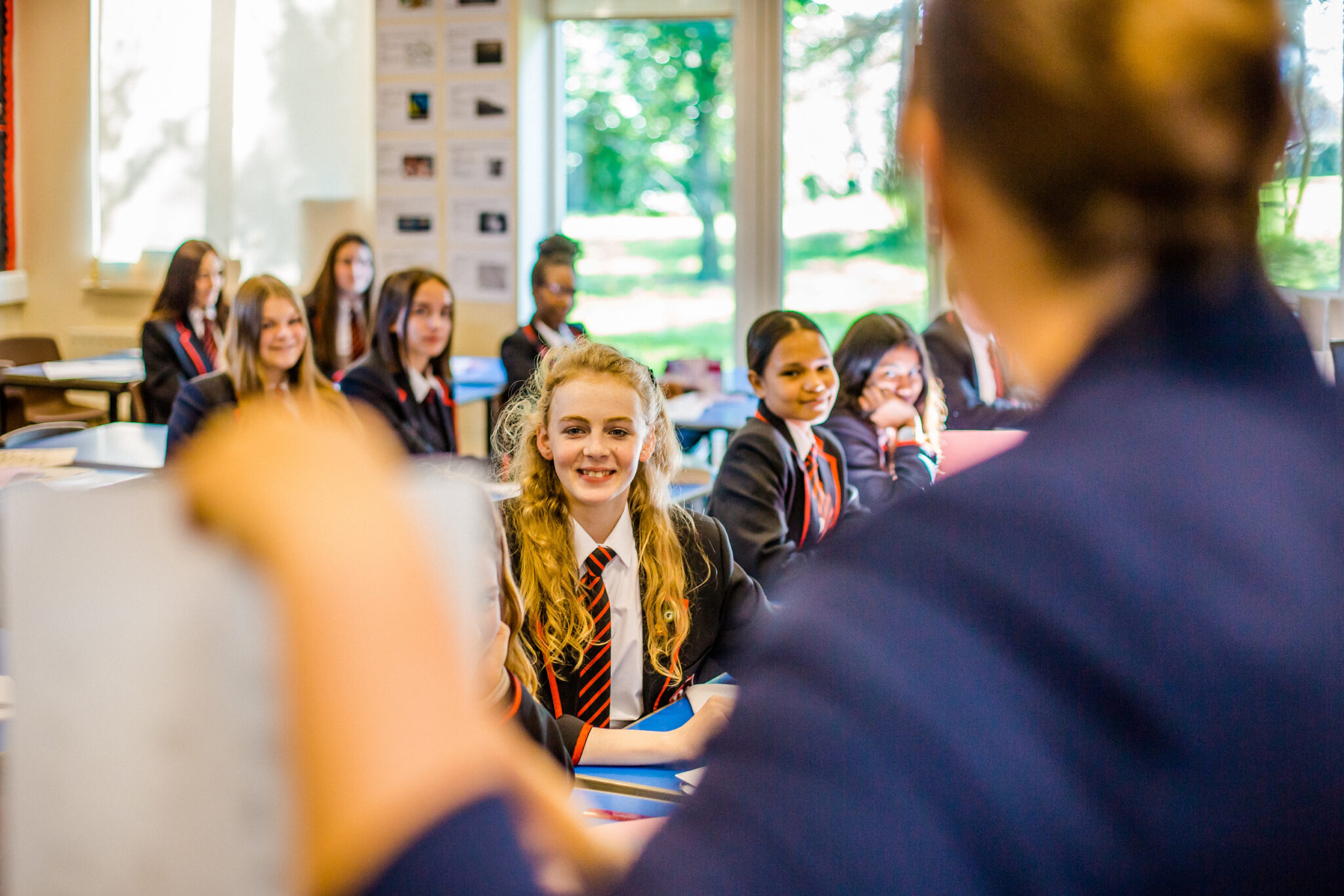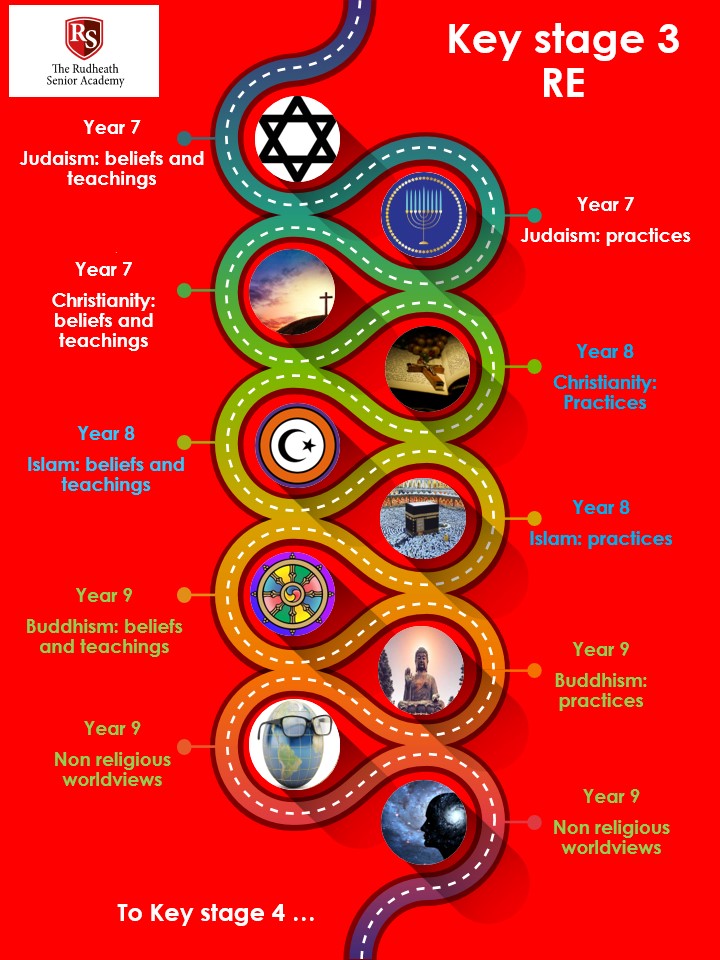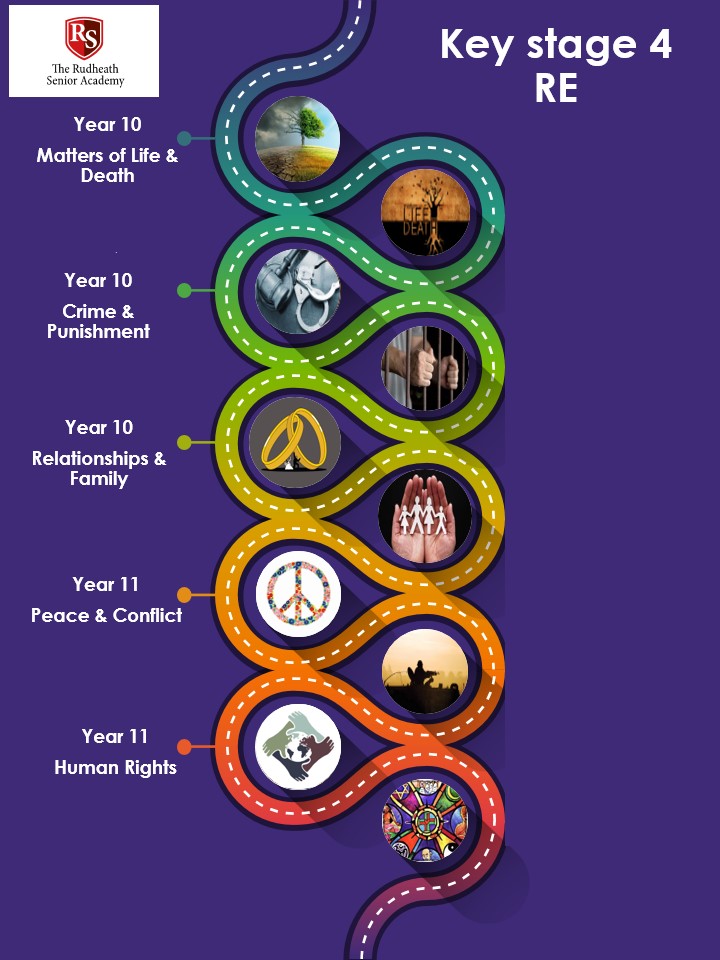
Religious Education
The purpose of the Religious Education curriculum is for students to know and understand a range of religious and non-religious worldviews and be able to critically engage with those views. Students should gain an appreciation for how these worldviews have impacted the world they live in at a local, national and global level.
It is our intent for the Religious Education element of our school curriculum to engage, inspire, challenge and encourage pupils, equipping them with the knowledge and skills to answer challenging questions. Religious Education enables pupils to ask deep and often searching questions about their own faiths, beliefs and opinions of others regarding pertinent contemporary moral issues. The teaching of RE makes links between the beliefs, practices and value systems of a range of faiths and world-views. The RE curriculum will help to develop responsibility and respect for all aspects of diversity, whether it be social, cultural and religious, and prepare pupils well for life in modern Britain.
We have chosen to organise the curriculum by beliefs and practices initially and then lead into how these impact themes at KS4.
At KS3 the curriculum breadth supports learners’ knowledge and understanding of both Abrahamic religions (Christianity, Islam, and Judaism) and Dharmic (Hinduism, Buddhism and Sikhism.) as well as non-religious beliefs. Throughout each key stage, the learning deepens their understanding of each faith. Learning is built on from KS3 to deepen their understanding of the relationship between people and their divergent views within traditions focusing on the way beliefs and teachings are understood and expressed. Pupils follow the Oak National Academy Religious Studies Course. Students are given opportunities to explore the fact that the religious traditions of Great Britain are mainly Christian but that they are also diverse and include other faiths, such as Buddhism, Hinduism, Islam, Judaism and Sikhism, as well as non-religious beliefs, such as atheism and humanism. Students are also exposed to Philosophical and Ethical Studies in the Modern World, looking at current real-world issues. There is scope to develop their ability to construct well argued, well-informed, balanced and structured written arguments, demonstrating their depth and breadth of understanding of the subject.
Religious Education is delivered through the Oak National Academy, the online virtual teaching portal allows students access a well delivered curriculum from a range of subject specialists. Students will begin lessons with a knowledge drill and take part in numerous online activities. Culminating in a learning reflection on the studied topic.
Religious Education is assessed through numerous low stakes formative assessments, assessing students’ knowledge, and understanding of the topics covered.
RE enrichment opportunities are taken wherever possible. Examples of these are working with the local food banks, taking part in charity events visiting places of worship such as St Helens Church and building links with various groups throughout our local community.
Students who have qualifications in RE generally go on to work in some of the following careers: the National Health Service (especially doctors and nurses), national and local government, schools, colleges and universities, financial and legal firms, charities; social services and other caring professions, PR, advertising, sales and marketing companies, libraries; museums, television companies and journalism.



